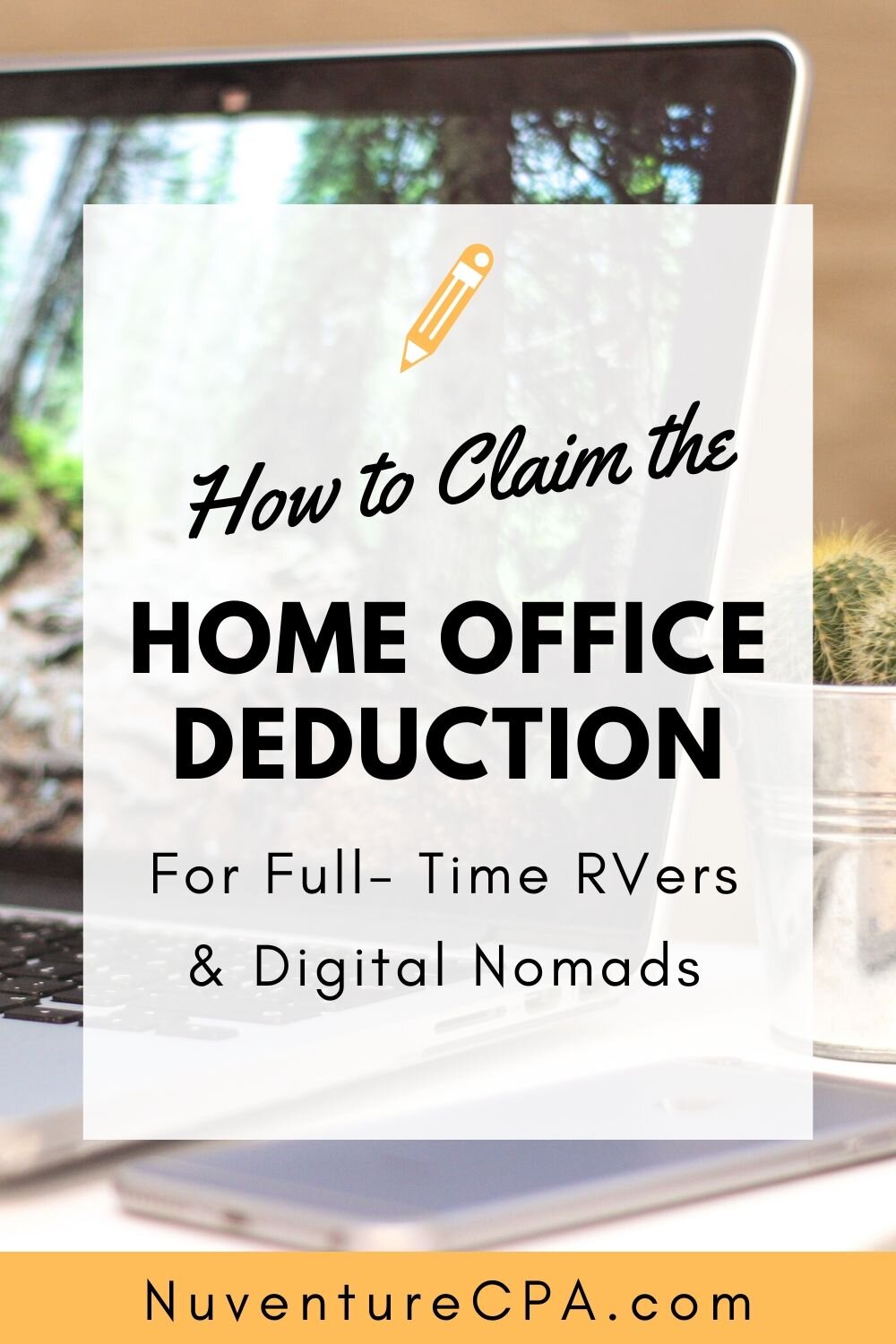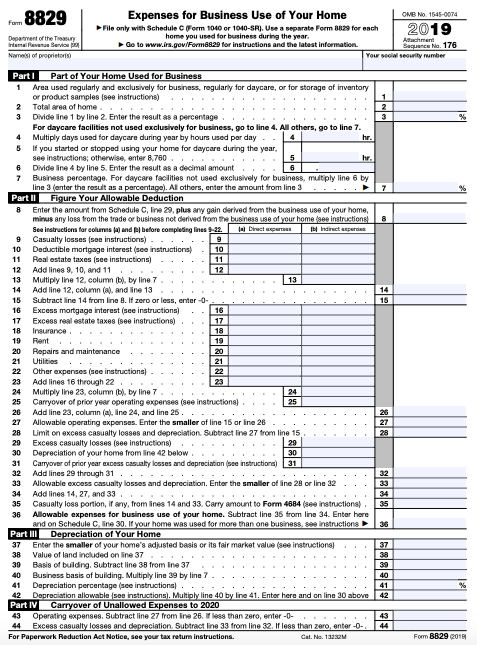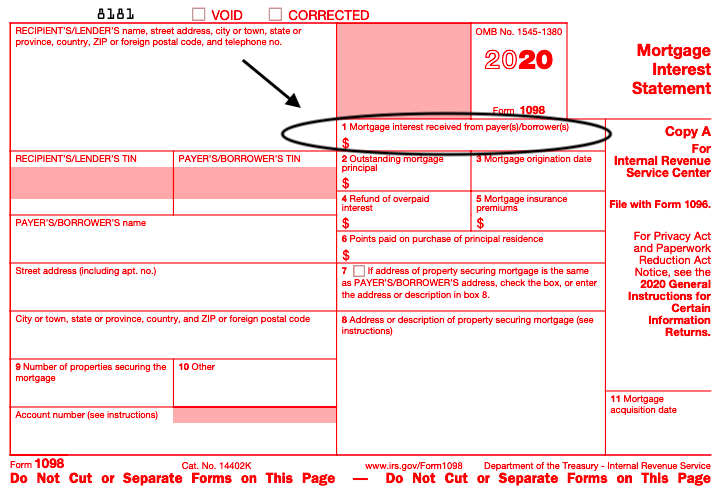“I’m a full-time RVer. Can I deduct my campground fees, gas, or mileage when I’m on a business trip in my RV?” “I’m a digital nomad. Can I claim my flights as a business expense when I travel for work?”
I get these questions all the time from digital nomads, full-time RVers, and full-time boaters who live and work on the road and are looking for tax deductions.
Since we’re already traveling full-time as a lifestyle with business trips mixed in, the IRS views us as nomads and it’s hard to claim travel costs as business deductions. However, there are certain situations where you can. Below, we walk through how you can determine if you can claim your mileage, campground fees, lodging fees, and flights as a business deduction. Let’s get crackin!
Other tax deductions to know if you qualify for:
Disclaimer: The information and materials we share are intended for reference only. As the information is designed solely to provide guidance, it is not intended to be a substitute for someone seeking personalized professional advice based on specific factual situations. Therefore, we strongly encourage you to seek the advice of a professional to help you with your specific needs.
WATCH MY EXPLANATION ON YOUTUBE
Can You Claim Your Travel Expenses (Mileage, Campground Fees, Lodging, & Flights) as a Full-time Traveler?
First, before we get started, I’ll be introducing you to new vocabulary the IRS uses- tax home and itinerant- to set the stage for us to determine if we can deduct our travel expenses for our business trips. I’ll explain below.
1. Are You Leaving and Then Returning Back to Your Tax Home to Go on Your Business Trip?
The first term that’s important to know when answering this question is tax home. The big question is where is your tax home? A tax home isn’t where you live, your tax home is the area where you regularly work to produce your revenue.
The IRS says you can deduct travel expenses for business trips when you leave your tax home and you’re returning back to it. You’re incurring expenses like gas costs, mileage, lodging, and flight expenses to leave your tax home and come back to it to do work.
So, where is our tax home as nomads?
Typically for nomads like us our tax home where we do our work is our RV or on our laptop in our backpack. We normally take our RV or backpack from new place to new place and we never return back to our previous location after a business trip. We carry on exploring. The IRS views us as itinerants. The IRS says itinerants are nomads and itinerants don’t have a tax home that they left and came back to because their tax home is usually moving along with them.
To be able to claim travel expenses as a business deduction, it has to be expenses that you incur to leave your tax home and return back to it for business purposes.
We know, this sounds complicated. Keep reading. We’ll help you understand ways you can have travel deductions for some business trip situations.
2. Do You Satisfy 2 or 3 of these Factors for your situation?
To determine where your tax home is and if you can claim your travel expenses for a deduction (because you left your tax home and returned back to it), the IRS has a 3 factor test to determine where your tax home is.
Here are the three factors:
“If you don’t have a regular or main place of business or work, use the following three factors to determine where your tax home is.
Factor 1: You perform part of your business in the area of your main home and you use that home for lodging while doing your business in the area.
This means you’re doing the work in the geographic area you typically call home— our RV or boat or Airbnb. We usually satisfy Factor 1.
Factor 2: You have living expenses at your main home that you duplicate because your business requires you to be away from that home.
Typically we don’t satisfy this factor because we’re not duplicating expenses anywhere. We’re traveling from new place to new place.
Factor 3: You haven't abandoned the area that which both your historical place of lodging and your claimed main home are located, or you have member(s) of your family living at your main home, or you often use that home for lodging.
Typically we don’t satisfy this factor because we’re normally abandoning the area we were just in to move along to a new location.
If you satisfy all 3 factors, your tax home is the home where you regularly live (and you can claim your travel expenses). If you satisfy only 2 factors, you may have a tax home depending on all the facts and circumstances. If you satisfy only 1 factor, you are an itinerant, your tax home is wherever you work, and you cannot deduct travel expenses." IRS Publication 463.
This all sounds complicated so we’ll dive into an example to help illustrate a real life situation where you can satisfy two factors from above to show you are leaving your tax home and returning back to it for your business trip to be able to deduct travel expenses.
For our normal travels, we generally can’t claim travel expenses because we typically are itinerants because we’re only satisfying Factor 1, we’re working in our regular area. We normally don’t satisfy Factor 2 (we’re not duplicating our expenses when we do a business trip) and for Factor 3 we don’t satisfy either because we normally abandoned our last area we were just in.
Example:
Let’s say you got a great deal to stay at an RV park or Airbnb in the perfect location for three months. Now, you’re in your second month in this location, but you need to leave for a few days to do a business trip. Can you claim your travel costs for the business trip as travel expenses for a deduction? Let’s walk through the IRS’s Three Factor Test to determine your tax home to see if you can claim your travel expenses.
“Factor 1: You perform part of your business in the area of your main home and you use that home for lodging while doing your business in the area.”
You’ve been doing your work at your three month stay. For your business trip, you’ll be doing your work in another place. In this situation, you don’t satisfy Factor 1.
“Factor 2: You have living expenses at your main home that you duplicate because your business requires you to be away from that home.”
You satisfy Factor 2. You’re duplicating your expenses by paying for your three month stay and also for lodging at your business trip location.
“Factor 3: You haven't abandoned the area that which both your historical place of lodging and your claimed main home are located, or you have member(s) of your family living at your main home, or you often use that home for lodging.”
You satisfy Factor 3. You haven't abandoned the area that’s your historical place of lodging, you intend to return back to it to finish your three month stay.
With this example, you satisfy two out of three of the factors. This means your tax home is the location of your three month stay, because for this business trip you’ve left your tax home and returned back to it. So in this situation, you can claim your travel expenses as a business deduction.
Since every business trip situation is different, it’s important to walk through the IRS’ three factor test each time to determine your tax home to see if you’ve left and returned to it so you can claim your travel expenses. It’s also important to keep records showing proof of you leaving and returning to your tax home. We share how to do that below.
3. Maintain Records of Proof for Your Travels
Each year, keep a travel log showing the dates and locations of all of your travels. If you need an example to get yours started, use this one. This will help you remember where you were on what dates in case you need to look back.
Keep copies of all of your receipts during business trips to prove your travel expenses and that you’ve duplicated your expenses.
Have a Question?
Heyo! I’m Adam Nubern, a digital nomad CPA. I hope this information is helpful for you. If you have any questions, please snag a time here and we can chat through your questions together.
Save this for later!
Too much to do now but you’ll get after it later? Download this information on our worksheet to remember how to determine if you can claim your travel expenses later.


















